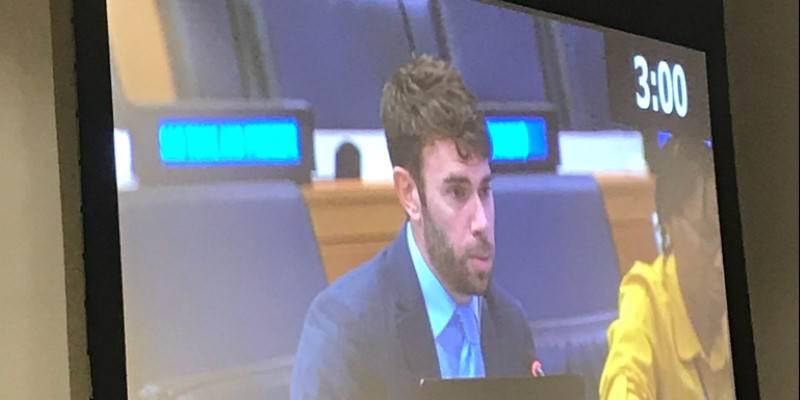It has now been 3 years since we adopted the Agenda 2030 as a plan of action for people, planet and prosperity. The same summer we agreed on an ambitious financing for development agenda in Addis, our joint plan for financing the sustainable development goals.
As the distinguished colleague from Brazil pointed out, this committee played an instrumental part in its conception, and the Addis Abeba agenda set a path for dramatically increasing financing for development – “from billions to trillions”. But we will not get there if we only focus on traditional forms of development finance. In fact, one of the main added values of the Addis Agenda is its comprehensiveness. In our view, this should also be a guiding principle for our discussions here in the on macroeconomic policy in the 2nd committee.
Chair,
Of course, ODA will continue to be important, and must be mobilized, in particular for Least Developed Countries. And there is room for growth. For the last ten years Norway has allocated around 1% of GDP to ODA, well above the UN target of 0,7%. As a consistent partner to the UN and the developing world, we will continue to honour this commitment also in the future.
But We must at the same time work to unleash new forms and new sources of finance, in volumes that far exceed ODA.
In this context, domestic resource mobilization - spurred by private sector led economic growth - will be decisive. This also entails more effective and fair tax collections, broadening the tax base and making tax systems work. Low income countries are especially vulnerable to the harmful effects of tax base erosion and profit-shifting.
Addressing illicit flows of capital is the other side of that same coin. According to some estimates more than 1 trillion USD is lost every year in illicit capital flows in developing countries. That is seven times the volume of development aid. No matter which measurement we apply, every single one of them shows that the net losses to development due to corruption and illicit financial flows are severe and cannot be ignored.
Chair, In just a decade, this issue has risen from relative obscurity to become a core development issue, but more needs to be done. Integrity, transparency and accountability are key ingredients in the fight against illicit flows, and we will continue fighting under this agenda item, as well as in other arenas, such as in our co-chaired panel series on the subject together with Nigeria.
Chair,
As we have heard this morning, the multilateral system is under pressure, as are the norms that underpin it. Let us not forget that multilateral cooperation has benefitted us all. Trade has been and continues to be crucial for development. It is therefore worrisome that global growth in trade is lower than the anemic global economic growth. Global trade must again become an engine of growth. An open, rules-based trading system is good for business. Not least, We need to make greater use of trade as a development policy instrument to help integrate the poorest countries into the global economy.
Borrowing is important for financing investment. However, we see signs of debt accumulation and distress in some countries. The current economic situation makes it all the more important to undertake responsible borrowing and lending. We must safeguard the successes of initiatives that have initiative in restored debt sustainability in developing countries. We have seen and are still struggling with implications of past debt crises. We should not allow history to repeat itself.
Last but not least, our deliberations show that there is an increased awareness of the need for inclusive growth. The SDGs and the Addis Abeba Agenda made this fact self-evident. Women make up half of the world's workforce, and we will not reach our 2030 ambitions without addressing and removing the obstacles for their increased economic participation and empowerment. The Addis Agenda got this right. Now we must follow through.
Thank you.
